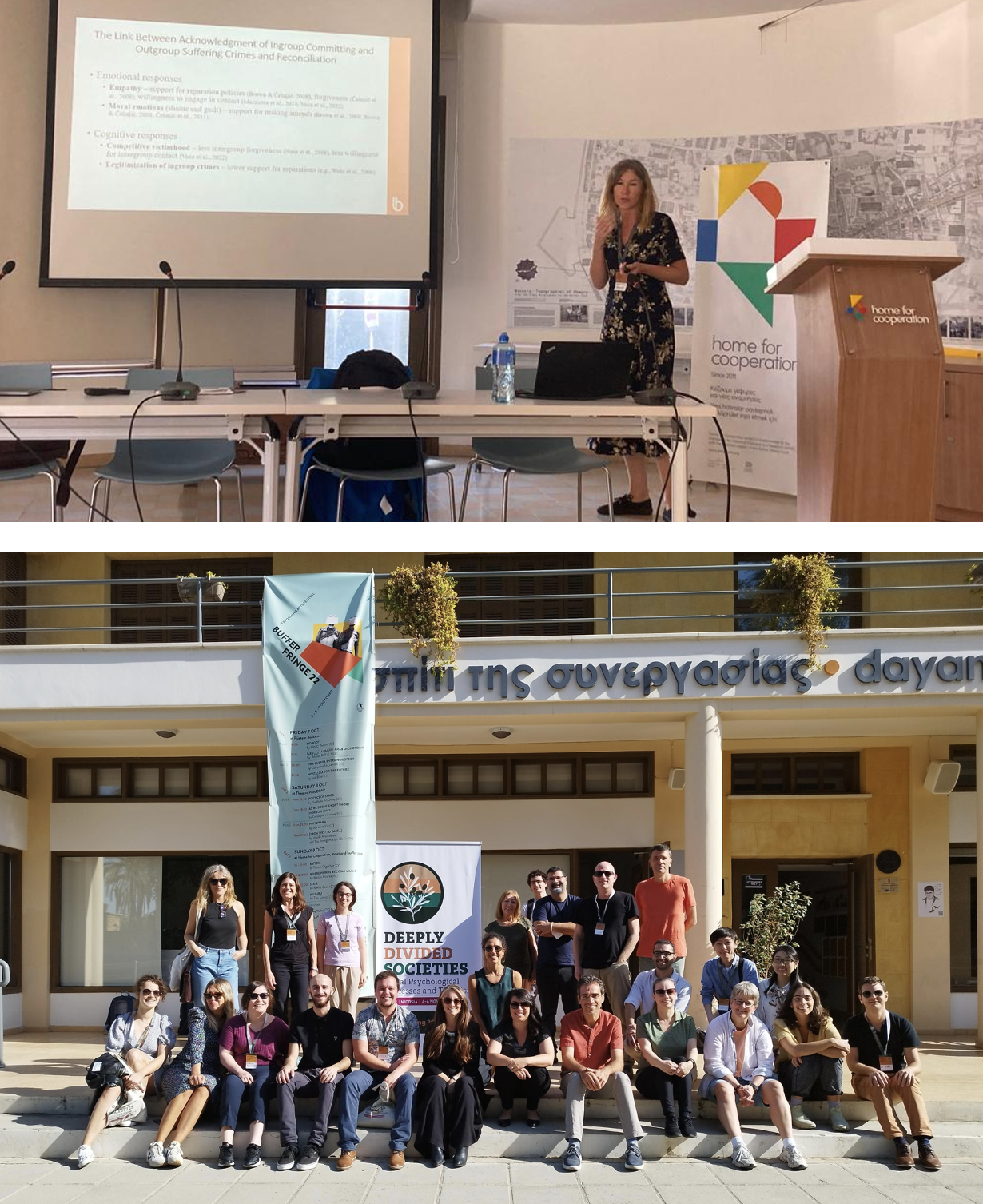EASP Travel Grant Report
30.04.2023, by Media Account in grant report
Deeply Divided Societies: Social Psychological Processes and Theorising

Magdalena Bobowik
I am incredibly grateful to have been given the opportunity to attend the Group Meeting titled "Deeply Divided Societies: Social Psychological Processes and Theorising" in Nicosia, Cyprus, from November 4th to 6th, 2022, thanks to the generous Travel Grant offered by the European Association of Social Psychology. The meeting was an amazing opportunity to engage with colleagues from around the world and discuss social psychological processes involved in deeply divided societies.
The agenda was packed with sessions covering various topics such as peace-building initiatives, prejudice reduction interventions, transitional justice, and more. I was impressed by the quality of presentations, and it was fascinating to learn about innovative approaches to resolving conflicts. The location of the meeting in Nicosia was particularly significant due to the city's divided history since the conflict between the Greek Cypriot and Turkish Cypriot communities in the 1970s. The House of Cooperation, located in the buffer zone where the meeting was held, serves as a poignant symbol of the ongoing tensions and efforts towards reconciliation in the region. It was a truly remarkable experience to be in a place with such a complex and conflicted past, to learn about the history of the city and its people, and to participate in discussions about resolving conflicts in the midst of a divided community.
The first day of the meeting started with a session on peace-building initiatives in Cyprus, featuring presentations on programs such as Peace Players. The day ended with a tour of the city and a dinner in the South part of Nicosia. The keynote presentation on the second day by Loris Vezzali on indirect contact prejudice reduction interventions was particularly interesting. The subsequent sessions explored different aspects of conflict resolution such as perpetrators and apologies, prejudice reduction interventions, transitional justice and collective action, intergenerational relations, memory, and trauma in intractable conflicts, and dynamics of protracted intergroup conflicts. The day ended with a dinner in the North part of Nicosia, which was a unique experience. The final day consisted of sessions on affective experiences of intergroup contact and conflict, paths to reconciliation, and a round-table coffee discussion and reflections.
During the meeting, I had the opportunity to present two papers in a session titled "Perpetrators and Apologies". It was a pleasure to share and discuss my talk on "Collective Memory in the Basque Country: The Interplay between Construals of Victimhood and Perpetratorship" with experts in the topic. The second paper I presented was authored by my colleague Mirjana Rupar from Jagiellonian University, and titled "Acknowledgment of Ingroup Crimes Promotes Positive Intergroup Relations in the Aftermath of Conflict: The Difference Between Ingroup and Outgroup Focus". In this work, we examined the links between the acknowledgement of ingroup crimes and reconciliatory acts in the context of the conflict between Albanians and Serbs over the Kosovo territory.
It was a great pleasure to spend three days with colleagues from around the world with a passion for a similar topic. It was inspiring to see so many people from different countries coming together to share their insights and experiences. Overall, the meeting was an incredible opportunity to learn about innovative approaches to resolving conflicts and engage in thoughtful discussion and reflection on these important issues. I would like to thank the organizers of the meeting, Charis Psaltis, Shenel Husnu, Maria Ioannou, and Huseyin Cakal, who did an outstanding job in putting together such a fantastic event!